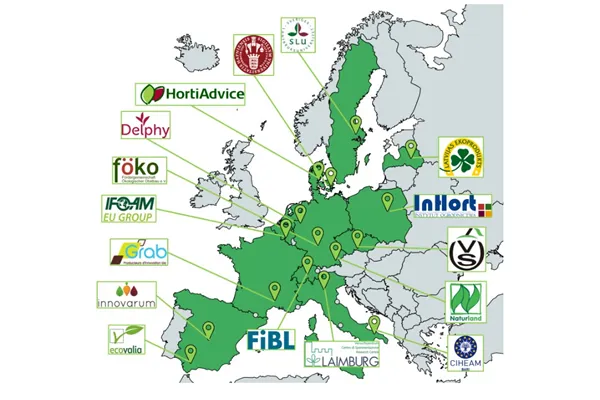Preventative measures against disease and pests are essential in organic fruit farming. However, insects, mites, and fungi can cause high losses. If necessary, growers can use natural pesticides.

Many European organic fruit farmers have their own adapted methods and techniques. They use these to control and combat pests and diseases successfully. This valuable, practical knowledge and experience often remain within their own company or region. It's not shared with other fruit growers facing the same challenges. The Biofruitnet project connects the entire European organic fruit sector. In this way, successful measures and methods can be made accessible to everyone.
The project's first step is to get an accurate image of the European farmers' current challenges. And to identify the strategies used to tackle these issues. The Biofruitnet partners have set up an English questionnaire. It's for fruit farmers, advisors, and researchers in the organic sector. These questions are used to determine what knowledge is needed and must, therefore, be developed. That's for organic top and stone fruit as well as citrus cultivation. Experiences with self-developed measures are also being recorded. These are for disease and pest control. Fruit growers are also asked how they'd like to receive this technical information.
The questionnaire's results will determine what know-how and information are needed in the different regions. It will also show how this knowledge should be made available. And which communication channels the growers prefer. That includes, for example, videos, podcasts, and e-learning courses. All this data must be both informative and easily accessible. These communication products will be available across Europe via networks, advisory services, and educational facilities.
About 300 surveys will be done throughout Europe. Of these, 20 will be in Belgium and the Netherlands. Organic fruit farmers, advisors, and some researchers are being approached. This summer, they'll fill in the questions in 20 European countries. Each country's local contact will contact the growers.
Delphy is the Biofruitnet project partner in Belgium and the Netherlands.
For more information:
Delphy
Biofruitnet
